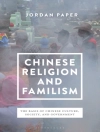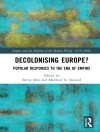Sport and physical culture in Occupied France examines the Vichy state’s attempts to promote physical education and sports in order to rejuvenate French men and women during the Occupation. Through this cultural lens, it illuminates the central paradox of state power during the Vichy Regime. The state organised a centralised physical cultural programme meant to control and discipline French men and women. However, these activities instead empowered individuals and sporting associations to create spaces for individual expression, protect entrenched business enterprises, preserve republican institutions and organise sites for mutual aid and assistance. Based on extensive archival research, this innovative, multi-city analysis demonstrates how French sporting federations, associations and athletes appropriated Vichy’s physical education directives to reshape the ideology of the state and serve their own local agendas.
Table of Content
Introduction
1 The interwar battle between amateurism and professionalism: the use of physical education and sports by the French left and right
2 Building the world they wanted: bureaucrats, teachers and athletic fields in Vichy social imaginary
3 Playground politics, childhood disobedience and Vichy’s national revolution
4 Why rugby and not soccer: Vichy anti-professionalism and the sporting environment of wartime France
5 The resilience of community: agency and autonomy in wartime sporting associations
6 French sporting associations and the creation of the myth of résistancialisme
Conclusion
Index
About the author
Keith Rathbone is a Senior Lecturer in History at Macquarie University












